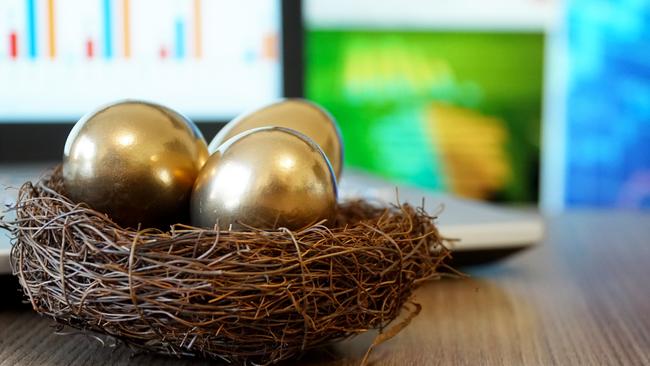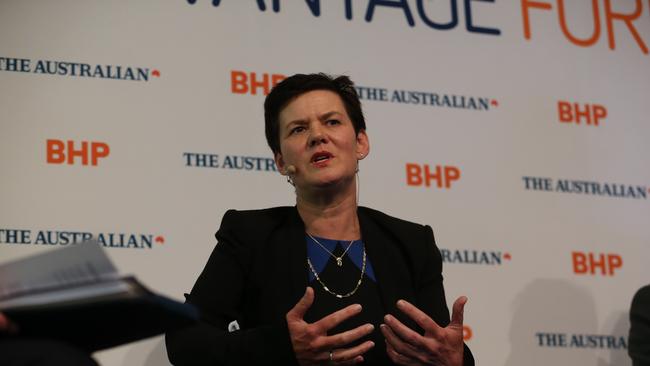Workplace gender equality efforts not ‘welfare’: KPMG Australia chair Alison Kitchen
Superannuation hit during parental leave highlights need to rethink workplace gender equality, says KPMG’s Alison Kitchen.

KPMG Australia national chairman Alison Kitchen says businesses and policymakers should continue to view gender wealth and workplace inequality as “value creation,” rather than “welfare.”
The comments come as an Industry Super Australia report showed women’s retirement incomes are being hit by government and most businesses not paying superannuation on parental leave schemes.
Speaking at an Industry Super panel on Friday, Ms Kitchen said KPMG was continuing to lobby the government on ways to improve retirement outcomes for women, including adding super benefits to the commonwealth paid parental leave scheme.
“We must stop looking at ways to help women achieve equal status in the workforce as welfare and start recognising that this will drive growth in the economy, the greater payments of taxes, a greater ability to look after ourselves through working lives and into retirement,” Ms Kitchen said on Friday.
“And I feel that economic narrative shifted in both sides of politics at the last election, I think that sets us up well for continuing to go with more initiatives going forwards.”
“The more that we continue to see that narrative being recognised and understood by government, the easier it is for them to recognise and do something about it.
“I‘m sure they won’t go as fast as we want them to. But we certainly expect them to continue and we’re certainly pushing hard on many fronts.”
The report estimates up to 1.45 million mothers could have had their retirement savings bolstered by a collective $1.6bn, had the commonwealth’s paid parental leave scheme included super payments when it was introduced 10 years ago.
Despite the scheme being open to all primary carers regardless of gender, Industry Super analysis found that 99.5 per cent of applicants were women.
The report also calculated the scheme – which currently pays recipients the national minimum wage for up to 18 weeks – could have delivered $216.7m in super payments to more than 170,000 women in the 2020 financial year alone.

Overall, Industry Super Australia estimates a mother of two children would have an additional $14,000 at retirement if the scheme included super.
The report also called for more employers to add superannuation payments to their parental leave schemes, with an Industry Super analysis of enterprise agreements showing just 7 per cent include a provision to do so.
Former Australian attorney-general and chair of Super Fund HESTA Nicola Roxon – who was a cabinet minister when the government’s paid parental leave scheme was introduced – said the government adding super to its parental leave scheme would encourage businesses to do the same.
“I mean the government is a standard setter for many things, so I think it either helps normalise or provides a safety net,” she said. “And I think both of those things are influential for businesses.”
Industry Super’s report also broke down the federal electorates that would have benefited the most had the government started paying super on its parental leave scheme.
The western Melbourne electorate of Lalor would have been the top beneficiary, as its mothers would have received almost $18m in additional super payments over the past decade.
Law firm Maurice Blackburn CEO Jacob Varghese said although his firm, KPMG and HESTA paid super with parental leave, workers outside large professional firms were unlikely to receive similar benefits.
“If we need government action, it is in particular to drive outcomes through the entire economy especially for those employee groups that are not in a position to bargain for themselves,” Mr Varghese said.
He added it was important to encourage male employees to take parental leave.
“We have a workforce that is very skewed towards women, 77 per cent of our workforce are women,” he said.
“So we want to be sure that the women in our workforce that are taking parental leave don’t feel there’s any career disadvantage, so it’s very important that men do it too, in order to demonstrate that.
“Secondarily, given that we have so many women in our workforce, we want them coming back to work as much as possible once they’ve had children – and the best way to make that happen is for their spouses to provide equal care.”






To join the conversation, please log in. Don't have an account? Register
Join the conversation, you are commenting as Logout